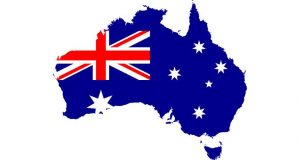INTRODUCTION
Gambling in New Zealand has its roots in three major sources of information. There is the source of administrative collections where data are collected in certain processes which we can regard as secondary to taxing, licensing or treatment. Also, prevalence surveys or surveys of attitudes towards gambling and the people’s participation in gambling produces some other data too -this is the second source of information in New Zealand Gambling-
Thirdly, there are data arising out of general statistical systems, which include input-output studies conducted for casino control Authority hearing.

Of these three sources, the most developed ones actually lie in the first and second categories.Here the Department of Internal Affairs (DIA) has been particularly active having commissioned two large prevalence studies and regular attitudinal surveys.
There has also been some published data from treatment providers, numbers of gambling machines and gambling expenditures. Although, so far there has been little data available on the flows of funds through, employment in, or value added, created by the gambling industry — let alone any social impacts that may be associated with it.
There is this usual assumption that gambling for most people is such a benign activity but for the other small minority, it has every appearance of mental illness, this category of people regard gambling as such an absurdity as will not qualify to be reckoned with.
This pathological perspective means that many of the wider issues surrounding gambling are missing from view. It also means that the data collected are not necessarily consistent with social reality. These points are illustrated by interrogating the available data to see if they can yield reliable information about the nature of gambling
DEVELOPING GAMBLING IN NEW ZEALAND
The crux of this article is essentially to state viable prospects for the development of New Zealand’s gambling activities. This would entail a perusal of certain research agenda.
Noteworthily, the drag on local and regional social and economic development of gambling is yet to be properly analysed. Yet without a clear idea of the socio-economic role of gambling the public health approach to gambling policy must remain empty rhetoric.
Increased problem gambling means less saving and less spending on other items whether luxuries or necessities. The results among this market segment might be hunger, loss of housing, bankruptcy and even suicide (Grinols and Mustard 2001:143-162). It may mean that the needs of children and other dependants are ignored.

The effects on the wider community may include increased defalcations, theft and other criminal activities aimed at financing gambling habits (Gazel 1998:66-84). In New Zealand we have far to go in exploring the potentially corrosive mix of social and economic forces that swirls around problem gambling.
It may be, therefore, that the incidence of problem gambling is triggered by social and economic deprivation. If so, it may be possible to predict the need for treatment services from socio-economic indicators. Anecdotal support for this view comes from the reports of increased gambling, even in Moslem countries, in the aftermath of the Asian financial crisis in the 1990s (Dursin 2001).
PROSPECTS
• INCREASE IN WOMEN’S PROBLEM GAMBLING
The Australian Productivity Commission argued that there was a rising proportion of women among problem gamblers (Productivity Commission 1999 Vol. 3 (Appendices):Q9-Q12). It called it the “increased feminisation of problem gambling” (p.Q12)
A very different source of information, recently made available, suggests that the apparent increase in women’s problem gambling may be related to an increase in participation in gambling. The Time Use Survey taken in 1999 found that on average New Zealand adults spent 60 minutes a day gambling.17 On average, women gambled for 76 minutes a day and men gambled for 44 minutes a day. For women, this was slightly longer than they spend preparing food (Statistics New Zealand 1999).
• THE PUBLIC HEALTH APPROACH
It is important for the development of New Zealand gambling that public health approach to gambling policy is necessarily based on a thorough knowledge of the causes and consequences of gambling. Unfortunately that knowledge does not yet appear to exist in New Zealand. It follows that a substantial proportion of the Problem Gambling Levy, which was introduced in the Gambling Act, should be devoted to socio-economic research into gambling.
The research agenda that should be followed is different from that employed until now. It should ask detailed questions about the social and economic foundations of gambling activities. It should also aim to predict the needs of problem gamblers and to design and propagate effective education about safe gambling behaviours.
It is also important that (in addition to the work of the Department of Internal Affairs) Government takes a broader interest in this agenda, and investigates the health, gender, development and other effects of the spread of gambling, and develops a more realistic model on which to base New Zealand’s gambling policy
• PROCEEDS FROM NON-COMMERCIAL GAMBLING ACTIVITIES
The proceeds received from non-commercial gambling, including New Zealand lotteries, gaming machines and “minor” forms of gambling such as raffles and housie, provide significant funding for a wide variety of community purposes. However, there is also some concern about the potential downside of relying on gambling funding to support community activities – for example, a concern that this undermines community capability in utilising traditional fundraising methods and/or developing innovative ways to raise funds.
To this end, the arguable position that “Commercial” gambling provides economic benefits such as dividends for shareholders, tax revenue and employment (although the evidence for this is highly equivocal), suggests that gambling activities in New Zealand should abound more in commercial gamblings.
• COMMUNITY INTEREST
Without prejudice to the fact that gambling also poses certain adverse effects to many individuals, their families and their communities. The community has an interest in ensuring that the benefits of gambling outweigh its negative social and economic impacts.
The potential for gambling-related crime and the sophisticated nature of some gambling products also mean that consumers and the wider community are subject to significant risk unless there is effective regulation and enforcement. This prospect suggests the need to ensure that gambling activities are effectively regulated and relevant rules are thereby enforced.
Also, Ensuring that the harms and costs of gambling are minimised, and any benefits maximised, through effective regulation and enforcement, contributes directly to a safer community.
• INVESTIGATION AND SANCTION OF NON-COMPLIANCE
Non-compliant behaviour may be related to underlying conflicts that are inherent in the class 4 gambling regime, for example, a clash between the commercial motivations of the hospitality sector which hosts the machines, and the requirement to minimise the costs of the gambling operation. It is important for the Department to concentrate effort on investigating and sanctioning non-compliance, ensuring the sector knows the requirements for compliance, and developing robust systems to gather information on the effectiveness of the current regime.
• POLICY ADVICE
Continuous monitoring and advise to Ministers by the Department on high-priority issues is one viable prospect to developing New Zealand’s gambling. Such issues include;
•Size and nature of the gambling sector, including the decline in gaming machine numbers and the possible growth in internet gambling;
•Pressure for more equitable, transparent funding from gaming machines;
•Impact of the economic downturn on community funding from gambling operators and other sources;
•Proposals from some groups to lift the prohibition on establishment of new casinos;
•The impact of the Australian Productivity Commission report on the gambling debate within New Zealand.
• ENGAGEMENT WITH GAMBLING OPERATORS
This is specifically aimed at increasing compliance within the sector by ensuring that operators understand their legislative responsibilities and the Department’s role, and view the Department as being effective and fair in the way it applies the Act, associated rules and policy. Engagement with non-casino gambling operators includes a programme aimed at identifying, discussing and resolving governance issues. Regional gambling forums have been established as the main mechanism to discuss sector issues, policy initiatives and other key messages. Objectives of the programme are to:
•Maximise the return to the community from non-casino gaming machine operations by minimising costs through the application of best practice initiatives;
•Ensure that trustees understand their responsibilities with respect to compliance with legislative requirements and Departmental policies;
•Influence gambling operators towards higher levels of compliance generally.

FEES REVIEW
For the purpose of achieving the desired development, the Department will begin to review the third party fees charged to gambling operators to ensure there is a sustainable basis for funding our gambling compliance activity in subsequent years.



